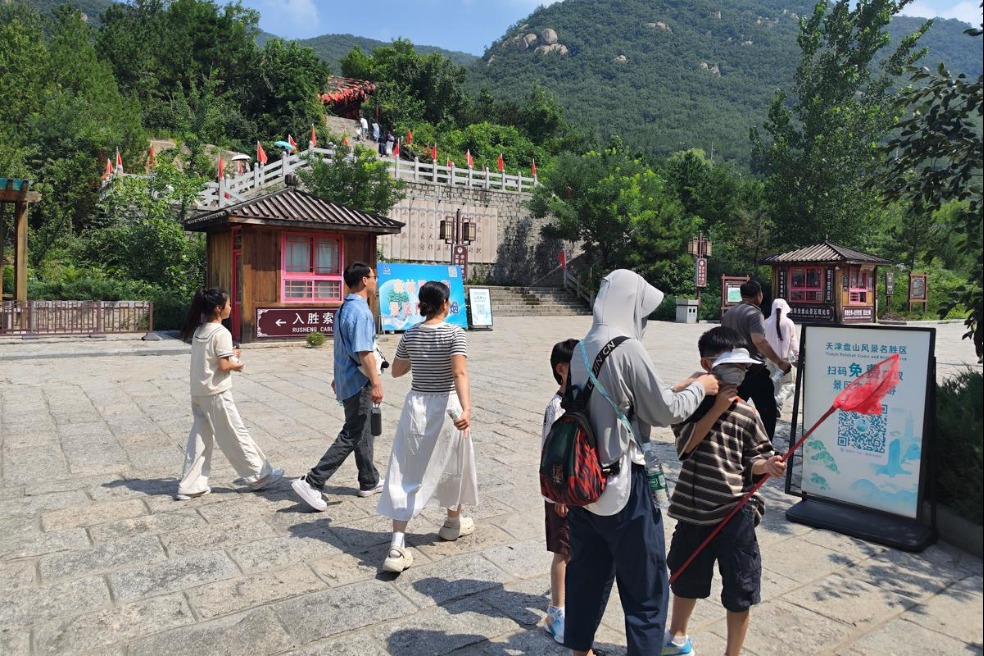International experts laud Xi's 'Two Mountains Theory' as global model for ecological civilization


International experts have praised President Xi Jinping's concept that lucid waters and lush mountains are invaluable assets, underscoring its role as a compelling alternative to the prevailing global development paradigm.
The experts shared their views during a seminar on the global significance of the concept held on Thursday in Beijing. The event was jointly organized by the Research Center for Xi Jinping Thought on Ecological Civilization and Xi Jinping Thought on Diplomacy Studies Centre.
Andrew Schwartz, vice president of the EcoCiv Institute in the United States, emphasized that at his institute, there is a belief that the future of humanity hinges on the ability to shift towards ecological civilization. This civilization envisions human prosperity rooted in the planet's health and the well-being of all life forms. Schwartz stressed that this transition involves more than just technology or policy; it necessitates a change in values, a reevaluation of what constitutes a good life, and a transformation in how success is defined.
He highlighted that President Xi Jinping's "Two Mountains Theory", which asserts that lucid waters and lush mountains are invaluable assets, stands as a significant articulation of ecological wisdom in the 21st century. The theory has become a guiding principle for national policy and a global model, reaffirming the interconnectedness of social and ecological systems. Schwartz emphasized that protecting nature is not a cost but a form of genuine wealth.
No single nation can build an ecological civilization alone, he said. The air people breathe, the waters that flow, the climate that sustains humanity —these do not recognize national borders. The international community must therefore act together, with shared vision and solidarity, to build a future that works for all people and the planet. "As we mark this 20th anniversary, let us carry forward the wisdom of the 'Two Mountains'. May it inspire a deeper awareness of our shared destiny and a renewed commitment to global cooperation — for the sake of future generations, and for the flourishing of all life on Earth," he said.
By integrating the "Two Mountains Theory" within its broader commitment to ecological civilization, China presents a compelling alternative to the prevailing development model, Schwartz noted. He described this leadership as timely, visionary, and inspiring, emphasizing the importance of global cooperation in advancing the construction of an ecological civilization.
Annah Lake Zhu, an assistant professor at Wageningen University in the Netherlands, highlighted that China's ecological civilization and the "Two Mountains Theory" have catalyzed tangible socioecological transformations. China has emerged as a primary driver of innovation and production in the global green economy, making significant global impacts through extensive tree planting and re-greening initiatives.
Over the past two decades, China has contributed to 25 percent of global greening, surpassing all other countries. An area of land equivalent to one-fourth of the Amazon has become greener within China. Zhu stressed the importance of not only disseminating Chinese concepts globally but also sharing the country's knowledge and experience of practical environmental actions on the ground.
"This is something that other countries are deeply curious about. In Europe, in the US, anyone who cares about the environment is very curious about what is happening in China regarding renewables and re-greening. We need to share these stories more," she said.
She emphasized that China's role as a new global environmental actor brings forth innovative methods and ideas that may serve as alternatives for other nations. These approaches offer new perspectives on environmental challenges in the age of human impact.
- Ethnic integration on the grassland
- China renews alerts for rainstorms, high temperature
- Beijing restores power, communications, water-supply to flood-hit villages
- Helicopter sightseeing project takes off over Wuliangsu Lake
- Court calls for judicial aid to inspire innovation
- Actions of J-10C fighter jet shown on TV





































